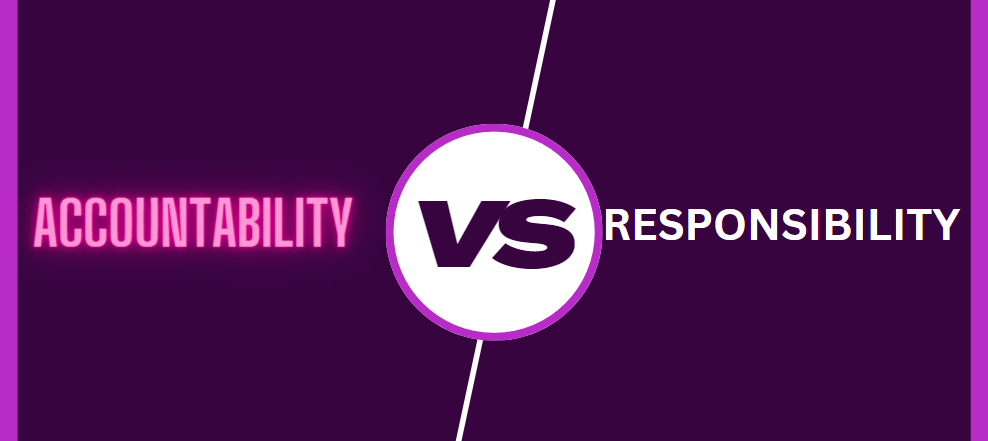
Accountability vs Responsibility: Leadership
Leadership is a complex journey that requires individuals to navigate through various challenges and Responsibilities. Amongst the many obligations leaders face daily, Accountability and Responsibility hold significant importance. In this article, we will dive deep into Unraveling Difference between Accountability vs Responsibility, and explore some examples to shed light on their significance in effective Leadership.
- Accountability
- Responsibility
- Leadership
- Management
- Decision-making
- Ethical leadership
- Organizational behavior
- Team dynamics
- Corporate culture
- Business ethics
- Leadership qualities
- Team accountability
- Personal responsibility
- Leadership development
- Professionalism
- Governance
- Business management
- Leadership skills
- Workplace accountability
- Leadership principles
What is Accountability?
Accountability in leadership refers to the obligation of a leader to take ownership of their actions, decisions, and consequences. An accountable leader acknowledges their role in the success or failure of a project, initiative, or team. They are not afraid to be answerable for their choices and behaviors, displaying a high level of integrity and transparency.
Example
For instance, imagine a leader who oversees a team working on a crucial client project. If there is a mistake or failure, an accountable leader will step forward to take responsibility, owning up to the error, and taking action to rectify the situation. They understand that their influence and decisions directly impact their team and organization, thus embracing accountability as a vital trait of leadership.
What is Responsibility?
Responsibility, on the other hand, encompasses a broader scope. In leadership, responsibility signifies the leader’s duty and commitment towards their team, organization, and stakeholders. A responsible leader takes charge of their role and ensures that all necessary tasks and obligations are fulfilled to achieve the objectives and goals set forth.
Example
For example, a responsible leader ensures that their team members have the necessary resources, training, and support to carry out their work effectively. They set clear expectations and provide guidance, monitoring progress and stepping in when needed. A Responsible leader prioritizes the growth and development of their team, recognizing that their success depends on the collective achievements of the individuals they lead.
What is the Concepts Between the Role of Accountability vs Responsibility?
While accountability and responsibility go hand in hand, it is essential to differentiate between these concepts. Accountability focuses on personal ownership, whereas responsibility encompasses a more comprehensive view of a leader’s obligations towards their team and organization.
To further appreciate the distinctions, consider a situation in which a leader assigns an important project to a team member. Accountability occurs when a team member completes a task and accepts responsibility for any mistakes committed. They accept responsibility for their acts and attempt to make apologies. The leader, on the other hand, is responsible for ensuring that each team member has the required skills, resources, and support to complete the project successfully.
What is the Balance Between Accountability vs Responsibility?
Finding the balance between accountability and responsibility is vital for effective leadership. A leader who solely focuses on accountability may exhibit blame-oriented behavior, shying away from taking risks or making bold decisions. This rigid mindset stunts growth and innovation within the team and limits the leader’s ability to nurture a culture of empowerment and trust.
Conversely, if a leader prioritizes responsibility over accountability, they may adopt a passive approach, delegating tasks without actively monitoring progress or holding individuals accountable for their performance. This lack of accountability can lead to a decline in productivity, quality, and overall team effectiveness.
Insight of overview about Accountability vs Responsibility
To strike the right balance, leaders must lead by example, demonstrating both accountability and responsibility. They set clear expectations and provide ample opportunities for open communication, feedback, and learning. Leaders should encourage individuals to take ownership of their work, while also holding them accountable for their actions and contributions.
In conclusion, accountability and responsibility are two pillars of effective leadership, each with its distinct characteristics. By understanding the differences and finding a delicate balance, leaders can establish a culture of trust, innovation, and growth. Through accountable actions and responsible leadership, individuals can be empowered to achieve their full potential, propelling the team and organization toward success.






